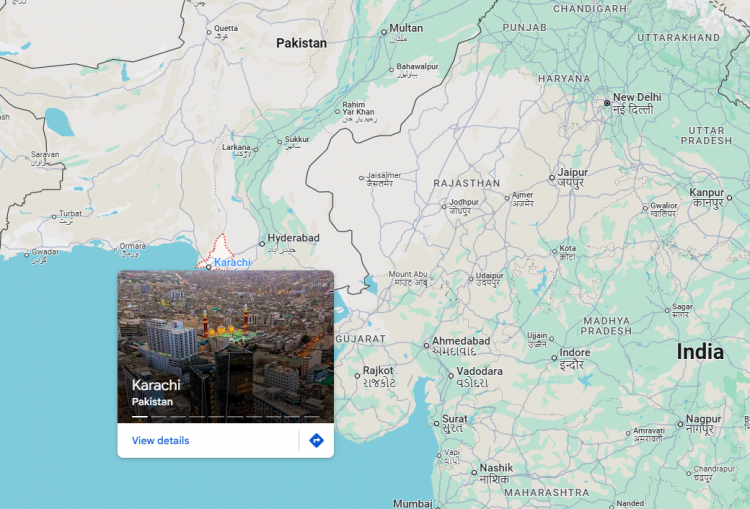India and Pakistan escalated military confrontations Thursday with cross-border missile and drone strikes that left dozens dead, drawing global concern over renewed conflict between the nuclear-armed rivals.
India's Ministry of Defense said its armed forces conducted retaliatory attacks on Pakistani air defense sites after Islamabad launched a wave of overnight drone and missile strikes targeting Indian military installations. Pakistan's Army spokesperson, Lt. Gen. Ahmed Sharif Chaudhry, accused India of a "serious, serious provocation" for deploying Harop drones in multiple cities, including Lahore, Rawalpindi, and Karachi.
Tensions have rapidly intensified since a terrorist attack in Indian-administered Kashmir last month killed 26 Hindu tourists. India has blamed Pakistan for backing the perpetrators, a charge Islamabad denies.
According to Pakistan, Indian drones attacked at least 13 sites early Thursday, with one drone striking a military facility near Lahore, killing one civilian and injuring four soldiers. Chaudhry said, "The armed forces are on high degree of alert and neutralizing them as we speak." He reported that 12 drones were shot down and displayed debris in major cities on state television.
India responded by targeting Pakistani radar systems, with its defense ministry stating it acted "in the same domain with same intensity as Pakistan." The Indian government confirmed its drones and missile systems had been used to counter Pakistan's strikes, which it said hit 15 locations across Northern and Western India.
The latest wave of attacks follows India's missile strike on Tuesday that hit nine locations inside Pakistan and Pakistan-administered Kashmir, killing at least 26, according to Pakistani officials. India's Defense Minister Rajnath Singh told lawmakers Thursday that over 100 terrorists were killed in what he described as "Operation Sindoor."
In Islamabad, Prime Minister Shehbaz Sharif condemned India's actions and vowed retaliation, escalating fears of a broader war. "War in any form is ugly for humanity," said Ramadan Muhamad, a Rawalpindi shopkeeper, after a drone crashed near his store. "God forbid, it could turn into a humanitarian disaster because both countries possess nuclear weapons."
The U.S. State Department issued a shelter-in-place order for its consulate in Lahore, warning of "drone explosions, downed drones, and possible airspace incursions." American citizens in affected areas were advised to evacuate if it could be done safely.
India launched civilian evacuation efforts across border villages in Kashmir, moving thousands into underground bunkers. Pakistani authorities evacuated 2,000 residents in Azad Kashmir as artillery fire continued along the Line of Control.
Commercial flights remained grounded across much of northern India and Pakistan, with closures at over two dozen airports including Delhi, Lahore, Islamabad, and Sialkot. The Indian military reported that 13 civilians and one soldier were killed on its side in shelling, while Pakistani authorities confirmed six civilian deaths in ongoing exchanges.
The Harop drones deployed by India, made by Israel Aerospace Industries, are known for their dual missile-drone capabilities. Pakistani officials said remnants of the downed drones have been secured and are being analyzed.






